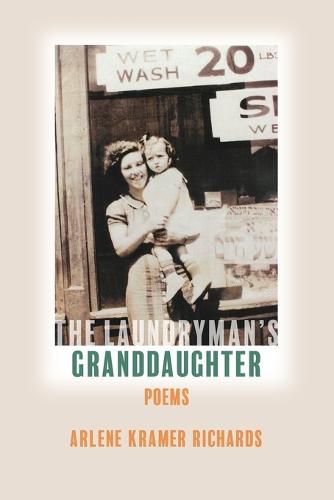Readings Newsletter
Become a Readings Member to make your shopping experience even easier.
Sign in or sign up for free!
You’re not far away from qualifying for FREE standard shipping within Australia
You’ve qualified for FREE standard shipping within Australia
The cart is loading…






This title is printed to order. This book may have been self-published. If so, we cannot guarantee the quality of the content. In the main most books will have gone through the editing process however some may not. We therefore suggest that you be aware of this before ordering this book. If in doubt check either the author or publisher’s details as we are unable to accept any returns unless they are faulty. Please contact us if you have any questions.
wish the title were not about a woman being some man’s wife, daughter, or even, as this is, granddaughter - but it was a different time, and this is how we all saw ourselves. At any rate, the child we see in these poems, trundling along in her grandfather’s laundry cart, is a charmer, and so are the poems that follow her through her growing up. As for the poems, they are strongly in the tradition of what is called working-class poetry, usually showing the strength that comes from that early experience and the resilience that enables one to move on through socio-economic hierarchy to a solidly middle or upper middle-class life. It was easier then than it is now.
Re-reading the poems, many favorite lines leap out at me again, as if from memory itself. In Retired on p. 3, the speaker says to an old man, all your senses retired before you did. Post Office (p.7), I walk my loneliness, my excuse for a dog … This whole short poem one of my most loved in the book. On p.8 we meet Bag Lady, who birdwings her fingers/over the bags/under her eyes. Wonderful image. The whole poem Sauna on p. 16 gives us a scene that will be familiar to all who have shared such an experience, but the stanza that ends with how to wait until the rings under her eyes are slipped out onto the finger of death is brilliant, as are the lines in Dying (p.18): I made you the man who pulls brilliant tomorrows/ from the leaves … And finally, in Tell Me (p. 20): Got any Halloween-headed kids around?/ I’m ready for a fright.
$9.00 standard shipping within Australia
FREE standard shipping within Australia for orders over $100.00
Express & International shipping calculated at checkout
This title is printed to order. This book may have been self-published. If so, we cannot guarantee the quality of the content. In the main most books will have gone through the editing process however some may not. We therefore suggest that you be aware of this before ordering this book. If in doubt check either the author or publisher’s details as we are unable to accept any returns unless they are faulty. Please contact us if you have any questions.
wish the title were not about a woman being some man’s wife, daughter, or even, as this is, granddaughter - but it was a different time, and this is how we all saw ourselves. At any rate, the child we see in these poems, trundling along in her grandfather’s laundry cart, is a charmer, and so are the poems that follow her through her growing up. As for the poems, they are strongly in the tradition of what is called working-class poetry, usually showing the strength that comes from that early experience and the resilience that enables one to move on through socio-economic hierarchy to a solidly middle or upper middle-class life. It was easier then than it is now.
Re-reading the poems, many favorite lines leap out at me again, as if from memory itself. In Retired on p. 3, the speaker says to an old man, all your senses retired before you did. Post Office (p.7), I walk my loneliness, my excuse for a dog … This whole short poem one of my most loved in the book. On p.8 we meet Bag Lady, who birdwings her fingers/over the bags/under her eyes. Wonderful image. The whole poem Sauna on p. 16 gives us a scene that will be familiar to all who have shared such an experience, but the stanza that ends with how to wait until the rings under her eyes are slipped out onto the finger of death is brilliant, as are the lines in Dying (p.18): I made you the man who pulls brilliant tomorrows/ from the leaves … And finally, in Tell Me (p. 20): Got any Halloween-headed kids around?/ I’m ready for a fright.